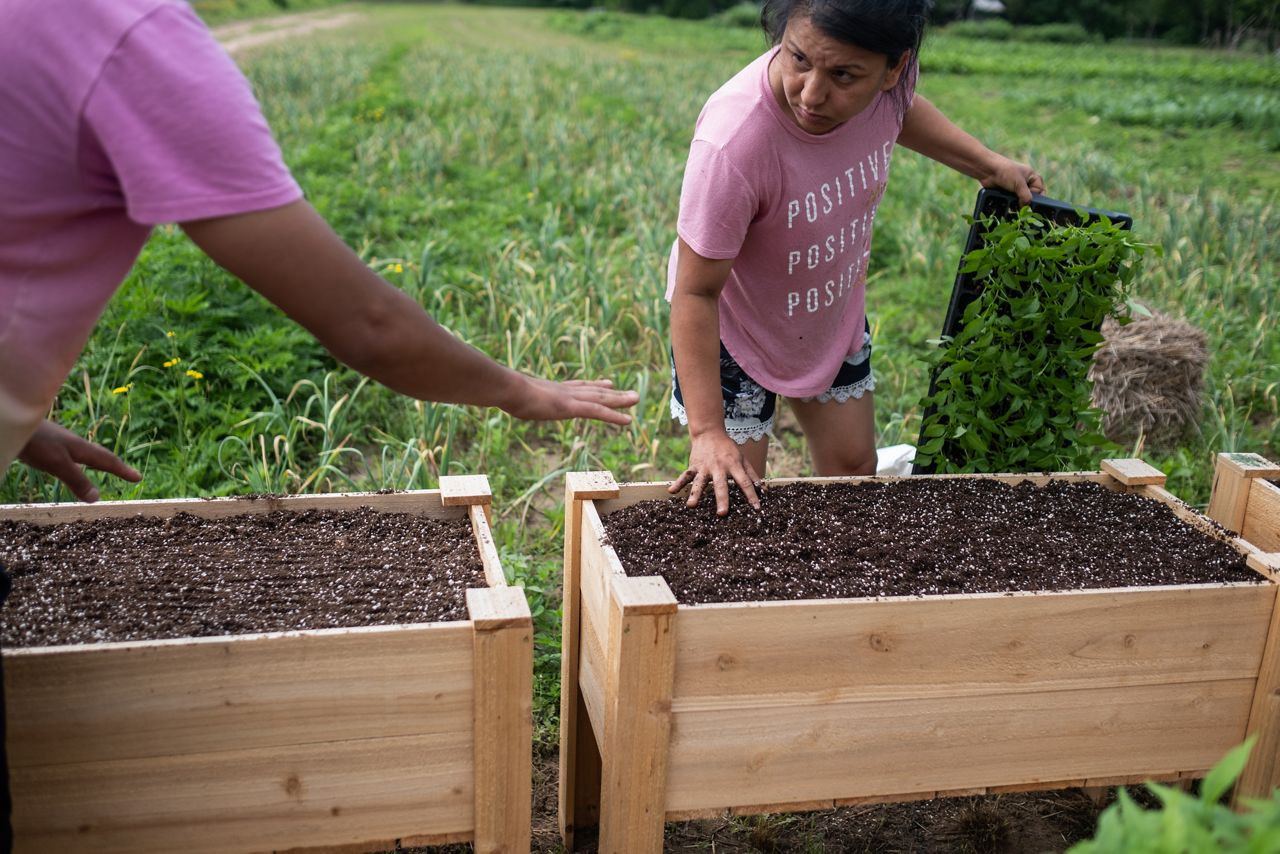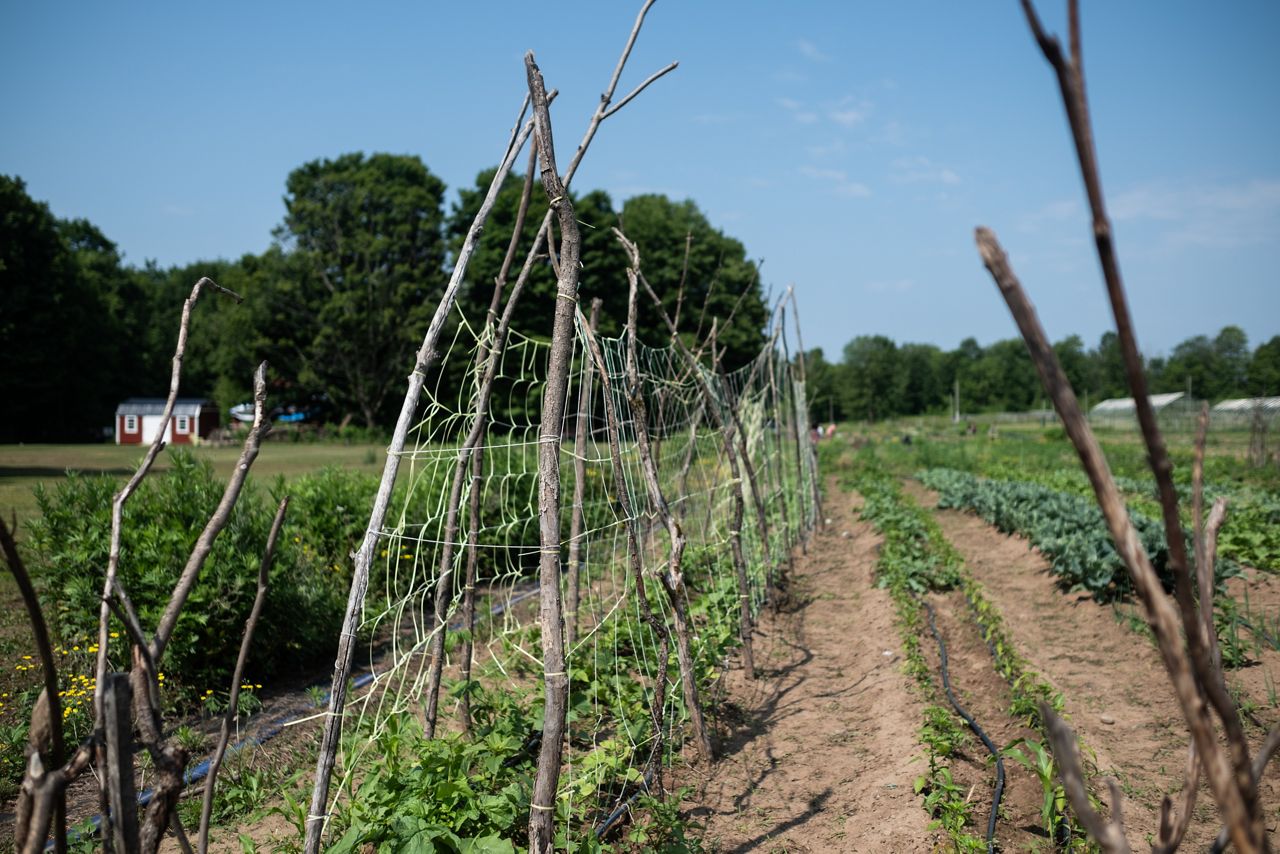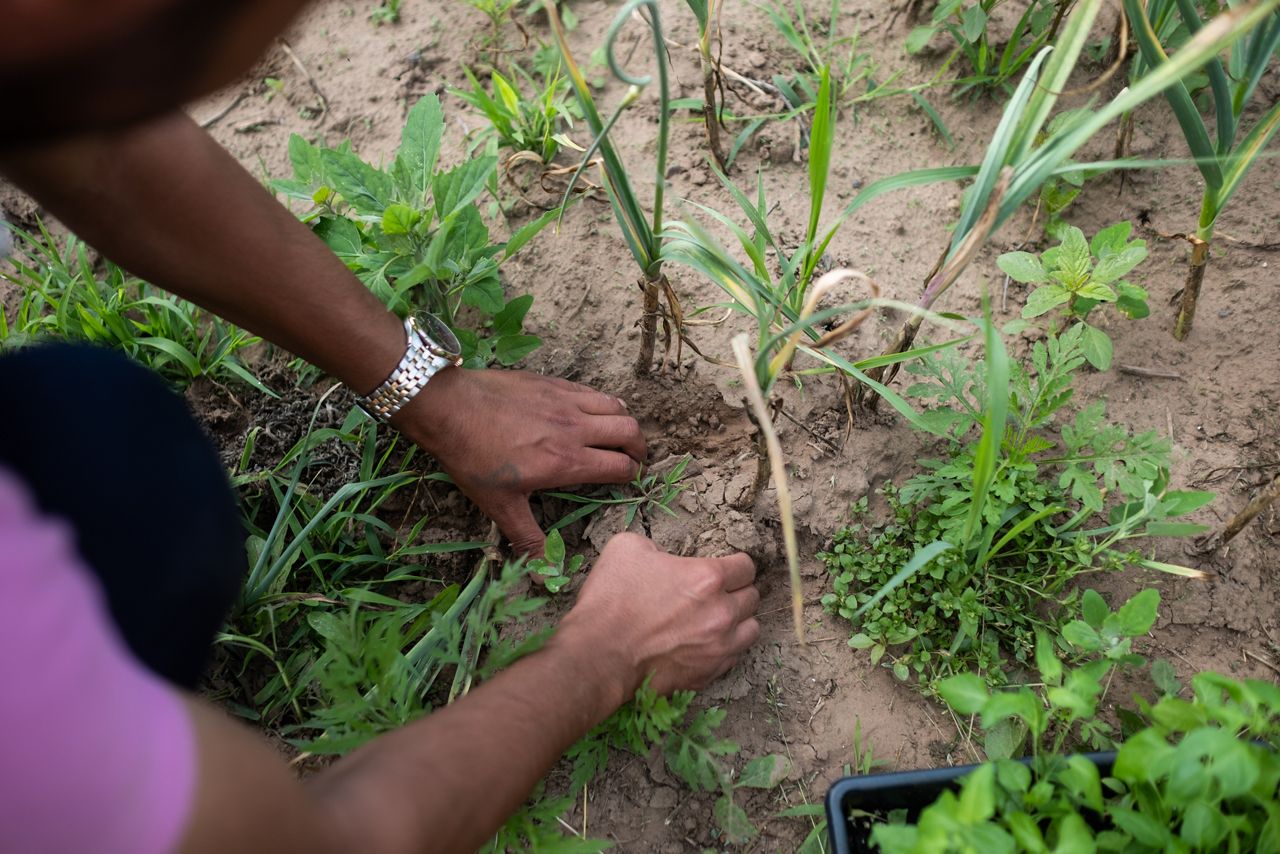The Deaf New Americans non-profit, which recently purchased a van to bring refugees to farmland in Kirkville and allow them to grow their own produce, is looking to be a model for similar initiatives nationwide.
“We wanted to have a deaf lead farm so we can empower ourselves to do what it is that we want,” said Monu Chhetri, the founder and CEO of the non-profit. “With the harvest, they want to bring it to the farmers market, and be able to earn some money from that, and also bring some of the vegetables home and use those to feed their families.”
The farm, called Asha Laalya (meaning “farm of hope”), is part of a broader community effort intended to give members the opportunity to sustain themselves on shared land according to their own traditions.

Chhetri — who lived in a refugee camp in Nepal for 19 years before coming to the U.S. in 2011 — talked about the hard work done by the people who keep the farm running daily, including one woman who recently became a new mother. She balances working on the farm with caring for her family. She also discussed how the group has learned to grow in an environment that is strange for them, taking skills that many learned in refugee camps overseas and adapting them to the Central New York climate.
“Our growing season was all year round in Nepal, but here it’s different. We have basically six months,” she said.
As Chhetri walks the fields and sees friends hard at work, she has a message for those who are concerned about migrants coming to the U.S.
“I can tell you that the people that I interact with are very hard working,” she said. “Their goal is to do whatever they need to do to succeed in our country. They’re willing to work; it doesn’t matter if it’s raining or if it’s hot or if it’s cold.”
She said that for those who are concerned about the willingness of migrants to work and earn a living, she can speak to her experience working with her own group.
“People coming here, they are very willing to be hard workers,” she emphasized. “They want to make sure that they have food on their table, and buying it is very expensive, but we work hard, and we really value our community here in Syracuse.”

She says she hopes the organization’s experience will inspire other advocacy groups to take similar initiatives, because she says it certainly has inspired her group to learn and grow daily.
“We are working together and we’re learning together,” she said. “It’s our first time going to the greenhouse on our own and planting, and we’ve made some errors along the way, but this has been a great learning experience for all of us to see the process from start to finish, together as a group, and we’re already taking notes on what to do to improve next year.”

Chhetri said that over the weekend, they had more than 50 refugees from across the country as well as Canada — some having just recently arrived from Ukraine — take part in workshops to show them what is possible and to encourage them find ways to do this where they are.
Chhetri says the farm will be open Saturday, July 29, for “Farm Day,” where the public is welcome to visit the farm, sample foods and purchase produce grown by the group. She said cooking classes are also in the works for next month.



